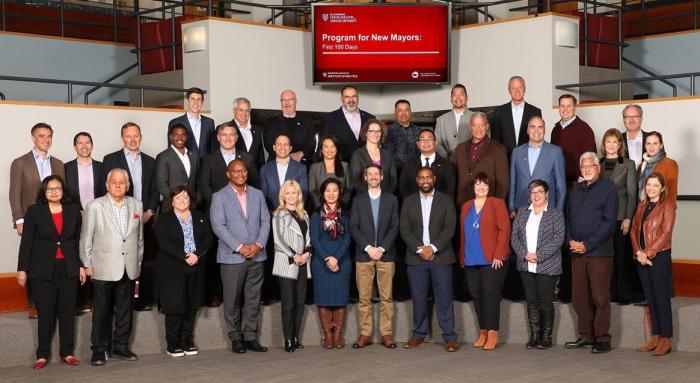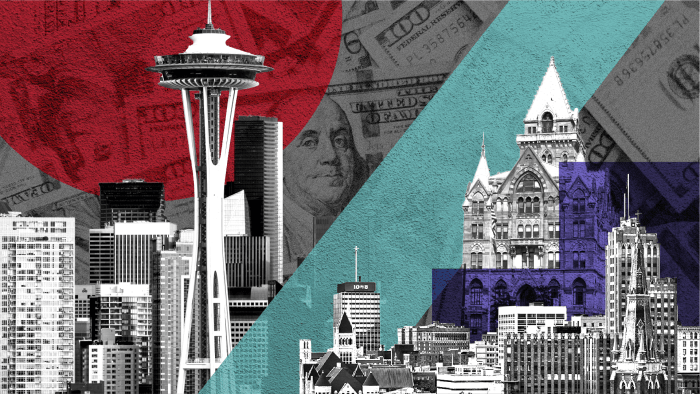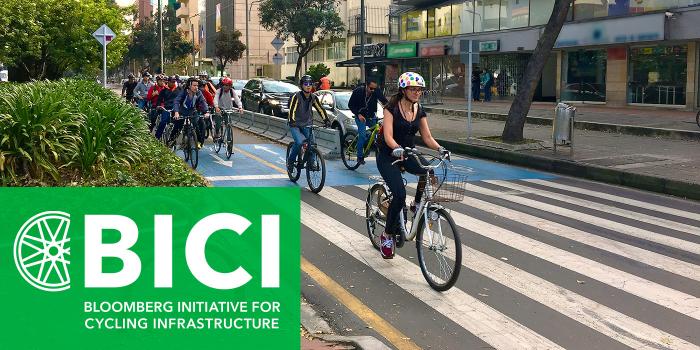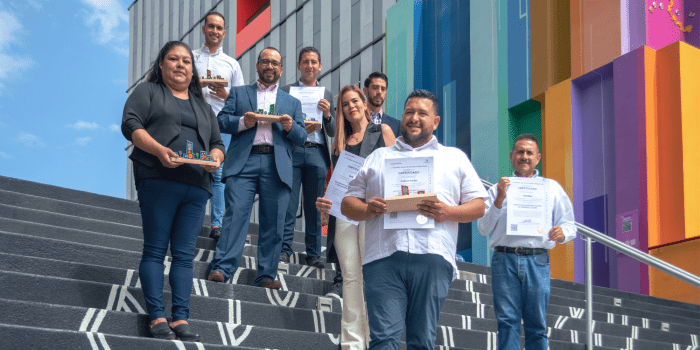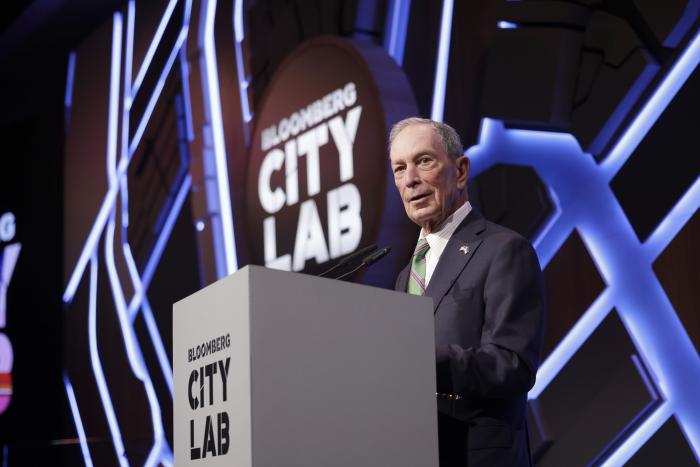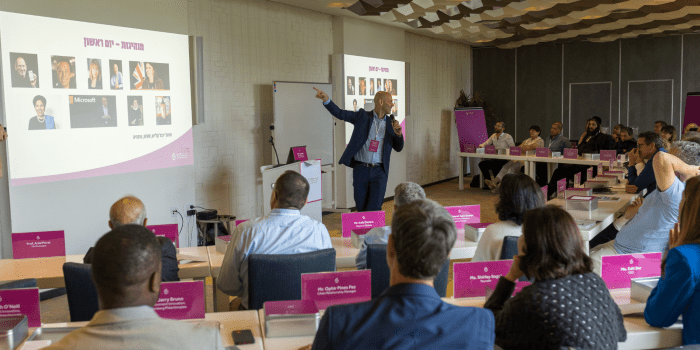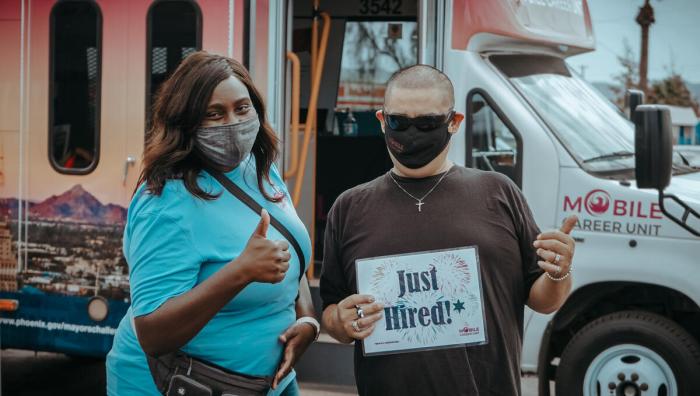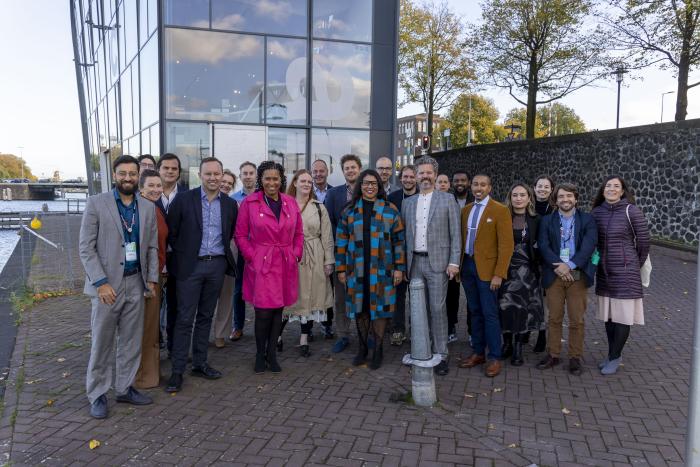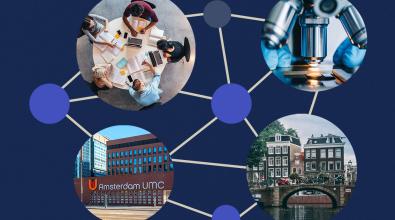10 ways Bloomberg advanced public innovation in 2022
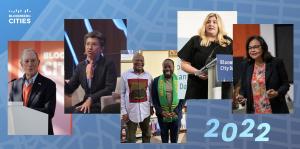
Here at Bloomberg Philanthropies, we know that local governments are essential to both improving lives at the community level and accelerating progress on global challenges. We also understand that city halls are consistently under-resourced, undervalued, and underestimated.
That’s why Mike Bloomberg made government innovation a priority for his philanthropy back in 2011. And it’s why, in the years since, we’ve stood up program after program focused on building the critical problem-solving capacities needed to unlock urban progress. Our strategy has focused on four areas:
- Developing better public-sector leaders;
- Supporting ambitious policy innovation;
- Building more effective city halls, especially by bolstering the use of data and collaboration; and
- Spreading what works between cities.
This past year was a momentous one for the Bloomberg Philanthropies Government Innovation portfolio, with many new investments aimed at increasing the breadth and depth of our work—while also bolstering our network of partners and supports for cities.
Here are 10 of the most significant ways we advanced the field over the past 12 months.
1. Filled a gap in leadership training for new mayors
Since 2016, our flagship executive education program, the Bloomberg Harvard City Leadership Initiative, has trained 196 sitting mayors from 25 countries, including leaders from 7 out of 10 of America’s biggest cities. This fall, we extended this programming to engage and empower the most recently elected mayors, reaching many of them before they even take the oath of office. This Program for New Mayors gives us a chance to begin connecting them to useful resources earlier while helping them navigate early decisions, like staffing structure and talent, that will pay dividends over time.
Learn more:
- Secrets of successful mayoral transitions
- Bloomberg Center for Cities welcomes 25 newly elected mayors to Harvard
2. Put procurement center stage
Procurement has long been cited as both one of the greatest barriers to innovation and one of the most underutilized tools in the effort to facilitate ambitious citywide transformation. This year, we launched several initiatives to pull procurement into the center of our work, in partnership with the Harvard Kennedy School Government Performance Lab. From “Extreme Procurement Makeovers” to efforts that connect public procurement chiefs with each other and with emerging best practices, we’re focused on redefining procurement’s place in city hall—from a back-office compliance function into a strategic asset at the heart of getting big stuff done.
Learn more:
- Four ways to turn procurement into a force for change
- Seattle & Syracuse set out to prove the power of procurement
- City leaders: Join the Procurement Excellence Network!
3. Launched a bicycling infrastructure competition
Bicycling works for cities and their residents in so many ways—reducing greenhouse-gas emissions, boosting resident health, and improving mobility. That’s why we launched the Bloomberg Initiative for Cycling Infrastructure in October. Borrowing from the competition format we’ve honed through the Mayors Challenge, we will now award 10 cities around the world grants of up to $1 million—along with critical technical assistance—in order to spark next-generation breakthroughs in cycling infrastructure and then help spread the most promising solutions around the globe.
Learn more:
- Bloomberg Philanthropies launches new initiative to build ambitious cycling infrastructure projects around the world
- Learn more about the program and apply here!
4. Doubled down on spreading good ideas
Our Mayors Challenge competitions always generate buzz, and the winning ideas are always exciting. What’s less discussed is everything that happens after the winners are announced: We rigorously evaluate programs as they are implemented and then, most importantly, help spread the most successful ideas. And these efforts are really paying off. For example, 32 cities in Mexico have adopted Guadalajara’s winning approach to business licensing and seven cities across two continents have adopted Stockholm’s method of turning plant waste into carbon-sequestering biochar. At last count, more than 320 cities around the world have either adopted or are currently working on implementing ideas first incubated through the Mayors Challenge.
Learn more:
- Helping city solutions spread: How we think of ‘replication’ at Bloomberg Philanthropies
- Mexico mayors get results as a digital innovation spreads
- Explore proven solutions for your city here!
5. Reintroduced a live and in-person CityLab to the world
The CityLab summit is our moment each year to bring together leaders of the global innovation community and mayors on the front lines of tough challenges to hear what’s new and share what’s working. This year, we convened in person for the first time since 2019. And we did so in one of the world’s most innovative cities, Amsterdam, where an innovation team we are supporting has set out to demonstrate for the world what “digital urban planning” means. One personal highlight for me: taking the mainstage to interview Mexico City Mayor Claudia Sheinbaum about her city’s impressive digital transformation efforts.
Learn more:
- 10 memorable moments from CityLab 2022
- Mayors at CityLab are building the post-pandemic economy
- Chief innovation officers reconnect as their movement grows
6. Kickstarted leadership training for mayors and senior city leaders in Israel
This year, we started spreading our mayoral leadership training model globally. Inspired by the Bloomberg Harvard City Leadership Initiative, the first sister program took root in Israel—based at Tel Aviv University—in partnership with the Sagol family. This program has core features that align with the original: a focus on capacities not policies, work with leadership teams not only mayors, and extending support opportunities so city leaders can directly apply lessons learned to local challenges. We’re excited to take what we’ve learned at Bloomberg Harvard and begin closing the global mayoral leadership support gap. Watch this space—there’s much more to come.
Learn more:
- Israeli mayors up their game with leadership training
- The Bloomberg-Sagol Center for City Leadership announces inaugural class of 20 mayors
- Strengthening local leadership in Israel at a critical time for cities
7. Expanded our data programs across the Americas
After spending the past six years helping cities across the United States build critical data capacities—and then establishing the first-of-its-kind standard of excellence for these skills—we broadened our focus in 2022, expanding our data supports to more than 30 countries across North, Central, and South America through the City Data Alliance and What Works Cities Certification. With this regional expansion, we also expanded to focus more on data policies underlying the work; each participating City Data Alliance city will adopt a citywide data strategy that includes a plan for data skills-building within the municipal workforce as well as a standard on when and where to disaggregate data to better understand needs.
Learn more:
- 22 Mayors from North and South America join City Data Alliance to chart new frontiers for data-driven government
- What Works Cities expansion drives data to new heights
- Apply for the next round of the City Data Alliance here
8. Helped U.S. cities make the most of federal infrastructure funding
For years, we’ve encouraged U.S. cities to lead when Washington wouldn’t. This year was a different situation, with historic sums of federal dollars flowing to cities through the $1 trillion Bipartisan Infrastructure Law. We brought together partners across philanthropy, academia, and the nonprofit sector to build the Local Infrastructure Hub, a support center designed to help cities navigate new funding streams and advance ambitious grant proposals. Among the supports are special bootcamps for small cities led by the National League of Cities; in the past decade, 99 percent of participating cities had not received federal funding from the grant where they sought bootcamp support.
Learn more:
- Major new philanthropic effort launched to help U.S. cities and towns access federal infrastructure funding
- U.S. mayors get ready to leverage new transportation grants
- Mayors see workforce opportunities in federal infrastructure funds
9. Named 15 winners in the first-ever Global Mayors Challenge
Since we started the Mayors Challenge in 2012, it’s been our core program to encourage outside-the-box thinking and inspire city leaders to put forward big ideas for addressing their most pressing concerns. Our latest competition was the first fully global challenge, with 15 cities on six continents each winning $1 million to implement ideas to emerge from the pandemic. The Mayors Challenge is more than a competition, however; all finalists get intensive coaching to strengthen their skills and ideas. So while I’m excited about the winners, I’m just as thrilled that more than two dozen cities that did not win are continuing to develop and implement their ideas.
Learn more:
- 15 cities win Global Mayors Challenge
- Lessons from the winning cities in the Global Mayors Challenge
- These Mayors Challenge winners are fueling opportunities for women
10. Built the Bloomberg Center for Public Innovation
A dozen years into building up this field, we felt strongly that public innovation needed a global center focused on developing the art and science of innovative local government. We based it at a place Mike Bloomberg loves—his alma mater, Johns Hopkins University. The new Bloomberg Center for Public Innovation celebrated its first anniversary in October. Under Executive Director Amanda Daflos, the Center has hired an all-star team of practitioners, researchers, and fellows to connect innovative local leaders, raise their ambitions, and lead this movement to the next level. And they’re just getting started, so stay tuned!
Learn more:
- Creating a resource for city workers to transform government
- Love Your Block is rewriting the rules of resident engagement
- Join the Bloomberg Cities Network!
James Anderson leads the Government Innovation program at Bloomberg Philanthropies.
